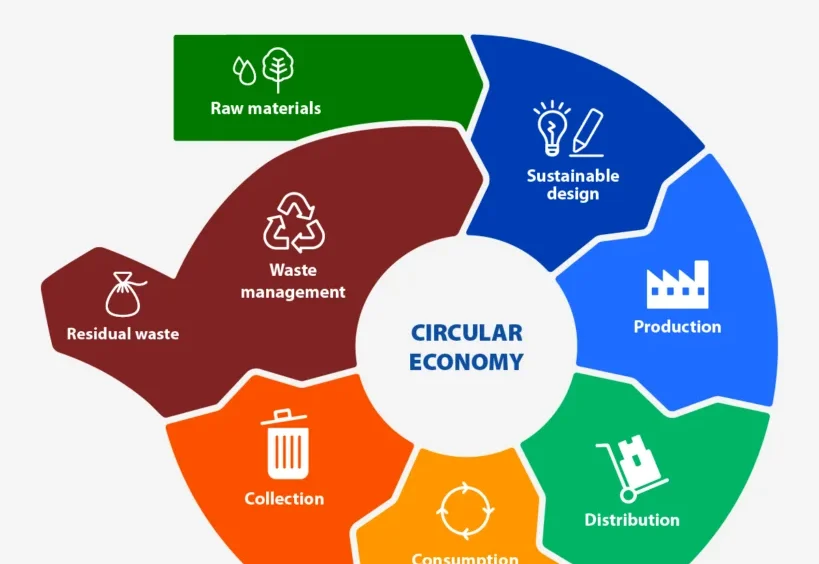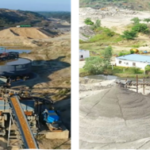Roadmap For Reduction Of Plastic Waste In India: A Comprehensive Approach

Plastic pollution has emerged as one of the most pressing environmental challenges globally, with India being no exception. Annually, India generates approximately 3.5 million tonnes of plastic waste, exacerbating ecological degradation and posing risks to human health. Recognising the urgency of addressing this issue, the Government of India has committed to mitigating plastic waste challenges through the development of a National Circular Economy Roadmap for Reducing Plastic Waste in India. This roadmap aims to drive the transformation of India’s plastic waste economy towards a circular model, emphasising sustainability and resource efficiency.
The Urgent Need for Action
India’s plastic waste problem has reached alarming proportions, with only 8 per cent of plastic being recycled, leading to significant environmental pollution. Plastic waste contaminates water bodies, terrestrial ecosystems, and the food chain, posing risks to human health and ecological balance. Over the past three decades, India has grappled with various strategies and campaigns to address plastic pollution, culminating in the introduction of the Plastic Waste Management Rules in 2016. However, the scale of the challenge remains daunting, with India producing nearly 26,000 tonnes of plastic waste daily, second only to the USA and the European Union.
Plastic pollution in India is exacerbated by factors such as the widespread use of single-use plastics, inadequate waste management infrastructure, and the rapid growth of online retail and food delivery services. The packaging industry is a significant contributor to plastic waste generation, with unsustainable packaging practices leading to substantial environmental impact. Moreover, plastic pollution poses risks to human health, with microplastics being detected in drinking water and food sources, highlighting the need for urgent action.
The Roadmap Solution
To address the challenges posed by plastic waste, major Indian and Australian research organisations have collaborated to develop the National Circular Economy Roadmap for Reducing Plastic Waste in India. This roadmap represents three years of collaborative research and engagement with stakeholders from various sectors, including researchers, industry representatives, government agencies, and communities. It offers a holistic view of the plastics value chain and provides systemic recommendations for transitioning to a circular economy model. Key features of the roadmap include clear recommendations for material flow, a framework for short, medium, and long-term actions, and delineated roles for different stakeholders.
Government Initiatives
The Government of India has undertaken several initiatives to address plastic waste, including the launch of a national dashboard on single-use plastics and plastic waste management, the enactment of Plastic Waste Management Amendment Rules in 2022, and the establishment of the India Plastics Pact. These initiatives aim to promote sustainable practices, enhance recycling efforts, and reduce the use of single-use plastics through extended producer responsibility and public awareness campaigns. Additionally, projects such as Project REPLAN, which focuses on reducing plastic bag consumption, demonstrate the government’s commitment to innovative solutions for plastic waste management.
Effective Solutions
Addressing plastic waste requires a multifaceted approach, including the identification of key hotspots for plastic leakage, the design of alternative materials to replace plastics, and the promotion of recycling through technological innovation. Initiatives such as promoting oxo-biodegradable plastics and exploring innovative recycling technologies highlight the importance of embracing sustainable practices in plastic waste management. Furthermore, fostering collaboration between government agencies, industries, and communities is essential for the successful implementation of effective solutions.
Global Collaborations and Initiatives
Internationally, efforts to tackle plastic pollution have gained momentum, with countries signing resolutions to address the full lifecycle of plastics and implementing measures such as plastic bag bans and directives on single-use plastics. Initiatives such as the Global Tourism Plastics initiative and projects like “Closing the Loop” aim to engage stakeholders across sectors to promote sustainable practices and reduce plastic pollution globally. By leveraging global collaborations and initiatives, India can contribute to collective efforts towards mitigating plastic pollution and fostering a cleaner, healthier planet.
Moving Towards a Circular Economy
Transitioning to a circular economy for plastics is crucial for reducing environmental impact and promoting sustainable development. By decoupling plastics production from virgin fossil feedstock, incentivizing recycling and reuse, and promoting responsible consumption, India can mitigate the adverse effects of plastic pollution and contribute to global efforts towards a more sustainable future. The National Circular Economy Roadmap provides a comprehensive framework for guiding these efforts and transitioning towards a circular economy model that promotes resource efficiency, sustainability, and environmental stewardship.
Conclusion
Addressing plastic waste in India requires concerted efforts from all stakeholders, including governments, industries, communities, and individuals. The National Circular Economy Roadmap for Reducing Plastic Waste in India offers a comprehensive approach to tackling this complex issue and provides actionable recommendations for transitioning towards a circular economy model. By implementing the roadmap’s recommendations and fostering collaboration at local, national, and global levels, India can effectively reduce plastic waste and pave the way for a cleaner, healthier future for generations to come.



















































































































































































































































































































































































































































































































































































































































































































































































































































